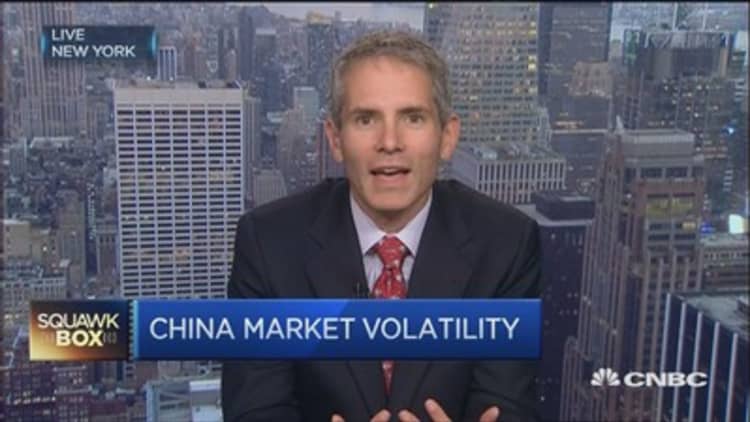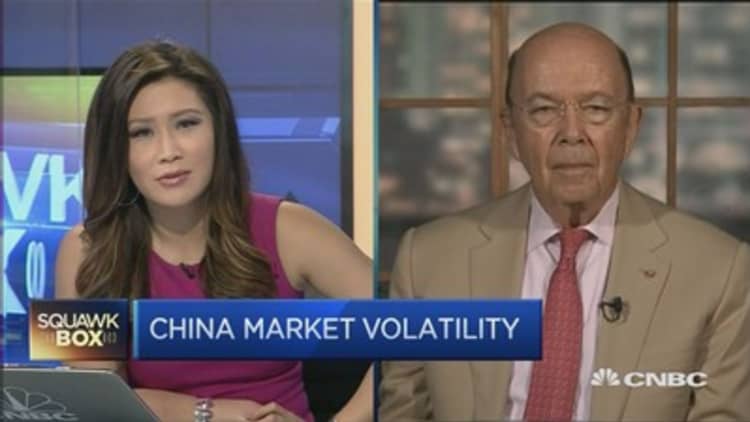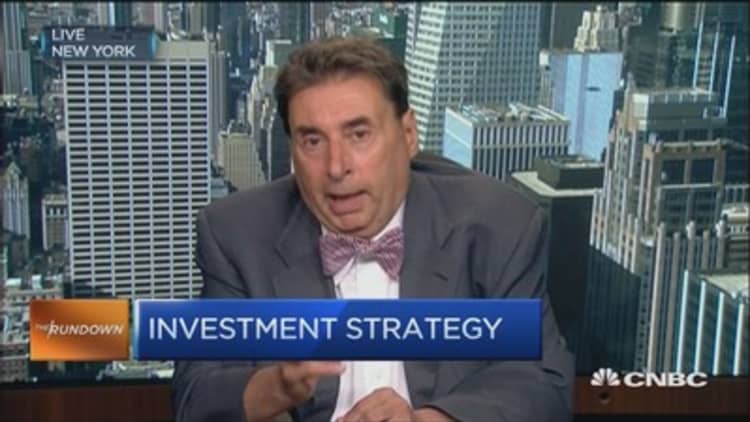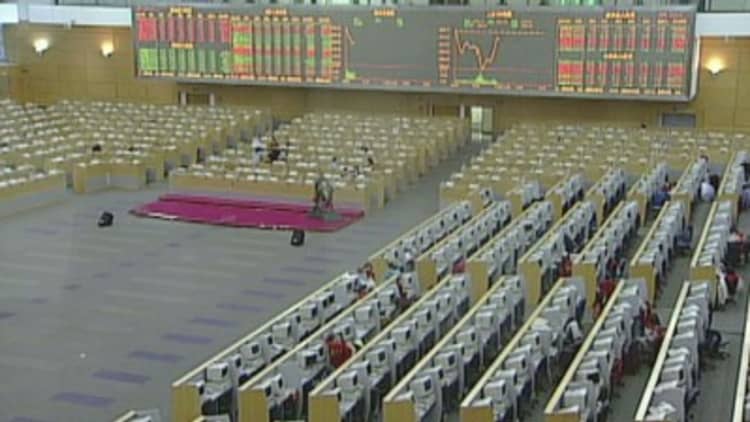


Many voices outside China predict a "clash of civilizations" between the rising Asian superpower and the West, as Beijing releases increasingly strident rhetoric against the "universal values" espoused by the United States and other nations. But what the Chinese government says may not matter.
"Clearly, there is a strong voice in the Chinese state today that celebrates authoritarianism," said Edward Steinfeld, a professor of political science and the dean's chair in China studies at Brown University. But he said China's future including democracy and personal liberty is "quite open-ended."
Steinfeld spoke at the Aspen Ideas Festival, which concluded over the weekend in Colorado. He was interviewed by writer James Fallows of The Atlantic.
Read More
Official rhetoric out of Beijing, delivered primarily through China's state-controlled media, has become openly opposed to the so-called universal values espoused by the United States, Europe and other nations.
Chinese President Xi Jinping, in particular, has staked out a position in opposition to personal freedom and civil society since his rise in late 2012. Instead, Xi calls for a Chinese system that rejects traditional Western beliefs, while still pressing for economic growth and material wealth.
Just when you think you understand how the system operates ... China has consistently defied those expectations. And not always in a positive sense.Edward SteinfeldBrown University
Aside from authoritarianism, however, other cultural traditions in "the Chinese repertoire" will keep coming into play to shape the way the country develops, Steinfeld said. He noted the last few decades have shown that Communist Party rhetoric typically doesn't play out in the real world. Often when Beijing's leaders preach restraint as it comes to inclusiveness and freedom, the Chinese people push ahead anyway.
"The system claims to be holding out against change, but it's continually throwing the dice," Steinfeld said. "The discussion is ongoing."
Read More Robert Schiller's shocking call: Buy Greek stocks
For example, Beijing frequently touts what it calls the "Chinese dream" in official rhetoric, but the government doesn't specify what the term actually means. So while the party's "Chinese dream" talk comes across as "flat-footed and a little ridiculous," Steinfeld said, the Chinese people fill in the blanks on their own.
"There are many 'Chinese dreams' out there, and most of them involve something about greater wealth," he said.
That improvisational trend has held true even as more regular Chinese join the Communist Party, which Steinfeld noted no longer identifies itself as a "revolutionary" party, but now calls itself a "governing" party.

All that said, Xi has wasted little time knocking off political opponents within China, and the country has acted increasingly aggressive beyond its borders. Asked by writer Fallows about China's "island building" in the South China Sea, Steinfeld acknowledged that countries like Vietnam and the Philippines almost certainly will have to accept and deal with China's claims on the region.
China overall has proven difficult to predict in recent decades and remains so now, Steinfeld said. He noted that when he first visited the country in the immediate aftermath of the Tiananmen Square massacre, he doubted whether China would continue growing economically. That instinct obviously proved wrong.
"Just when you think you understand how the system operates ... China has consistently defied those expectations," he said. "And not always in a positive sense."


